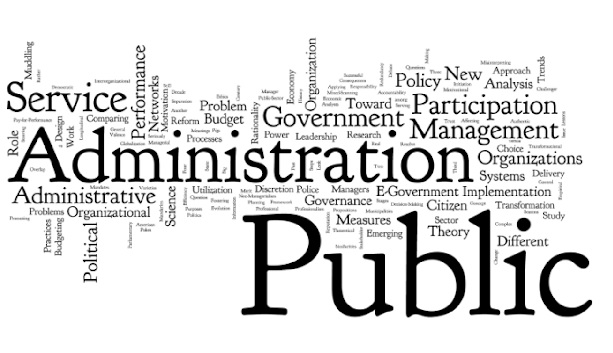The concept of ecology of public administration has to do with how the public administrative system of a geographical entity interacts with its environment. It further relates to how public administration relates to itself internally. The ecology of public administration in Nigeria, therefore, means how the Nigerian environment affects the way administrative actions are conducted in the country. As you read on, you’d learn how several factors of Nigerian society determine the nature, purpose, activities and behaviour of public administration in Nigeria.

The ecology of public administration in Nigeria would be discussed below:
-
How the Social Factor of the Nigerian Society Affects Public Administration in Nigeria
As we rightly established in the introductory paragraph of this article, the environment where public administrators operate influences, to an extent, how they discharge their administrative duties. As such, the way the Nigerian public legislative system functions is based on the environment. In this section, we will discuss how the social aspect of the Nigerian environment influences the country’s public administrative system.
In Nigeria, the public sector is perceived by most of the populace as the ‘national cake’ which should be sliced and eaten by public officers in positions of power. In fact, public officers who’ve looted the public treasury with impunity tend to be viewed as being smart by society. Those public officers who refrain from embezzling public funds are perceived as foolish and are scorned and despised, even by their families. Consequently, the public treasury has continued to be looted by public administrators, which further impoverishes the country.
Nepotism in the Nigerian public administrative system is another influence of the social factor of Nigerian society. Public administrators who ought to be loyal to the common good of the country would rather choose to show loyalty to family, friends, and members of their local/state/ethnic groups. In this situation, appointment into public office or the award of contract isn’t based on merit. The result is mediocrity and corruption that is conspicuous in the public administration system of the country.
-
How Human Relations Factor Affect Public Administration in Nigeria
Remember that we have earlier stated that the ecology of public administration isn’t all about how the public administrative system relates to the environment but also internally. From observation of the internal workings of the Nigerian public administrative system, there is an evident lack of cooperation and team spirit among superior public administrators and subordinates. There is the issue of superiors being reluctant to delegate responsibilities and authority to subordinates while subordinates are unwilling to accept responsibilities from superiors.
As a result of this lack of cooperation and team spirit in the public sector, top-level public administrators are mostly responsible for making decisions without duly using the talents of both superiors and subordinates. And this snowballs into aggression within the public sector, of which the populace eventually bears the brunt. Hence issues like poor public relations, poor service delivery, poor performance, and ineffectiveness are recorded.
-
How Language Affects Public Administration in Nigeria
Language is another factor of Nigerian society that influences how administrative actions are conducted in the country. With over 400 indigenous languages being spoken in Nigeria, public administrators may have a hard time communicating instructions to the populace effectively. Although the English language is the official lingua franca for Nigeria, there are still members of the public, especially in interior rural areas that do not understand English so well.
-
How the Educational System Affects Public Administration in Nigeria
As a former colony of Great Britain, the educational system Nigeria adopted was superficial at best as it didn’t seek to educate the indigenes. Rather the educational system passed on to Nigeria was one meant to teach the natives how to understand the English language, hence the emphasis placed on reading and writing. A more effective educational system (like the kind the colonial masters practised in the UK) would emphasize science and technology, and by extension acquisition of skills.
Today, the Nigerian public sector is filled mostly with public administrators armed with paper qualifications that make them generalists rather than specialists. As a result, a whole lot of public officials, though trained to tertiary levels, do not possess the industry-specific skills required for the position they occupy.
-
How Time and Number Factor Affect Public Administration in Nigeria
It is common knowledge that public officers in Nigeria lack time consciousness. They are noted for arriving late to work and leaving before closing hours. This disregard for time birthed the term ‘African Time’.
More so, the government, through public administrators, does not clearly define the length of time for government projects. All across Nigeria, there is an abundance of projects that do not have concise dates of competition. This makes it difficult to attain adequate follow-up and strict compliance.
-
How the Climatic Condition of Nigeria Affects Public Administration
Since Nigeria is situated in the tropics which are characterised by a hot and harsh climate, productivity levels of public administrators may drop. Well-ventilated offices with fans and/or air conditioners would help resolve the heat waves. However, an uninterrupted power supply to power these appliances is key to ensuring that public administrators are relaxed at work. Rest periods during the day and recreational facilities in the office can further improve the working conditions of public officers in Nigeria.
-
How Copy-Catism Affects Public Administration in Nigeria
Just as in so many things in Nigeria, the administrative system copied most of its operational styles from the Europeans. The European system of administration that the Nigerian public administrative system copied has a different cultural background than what is obtainable in Nigeria. The difference in culture and values between Nigeria and the Europeans in which the Nigerian public administrative system is tailored usually results in conflicts in policies.